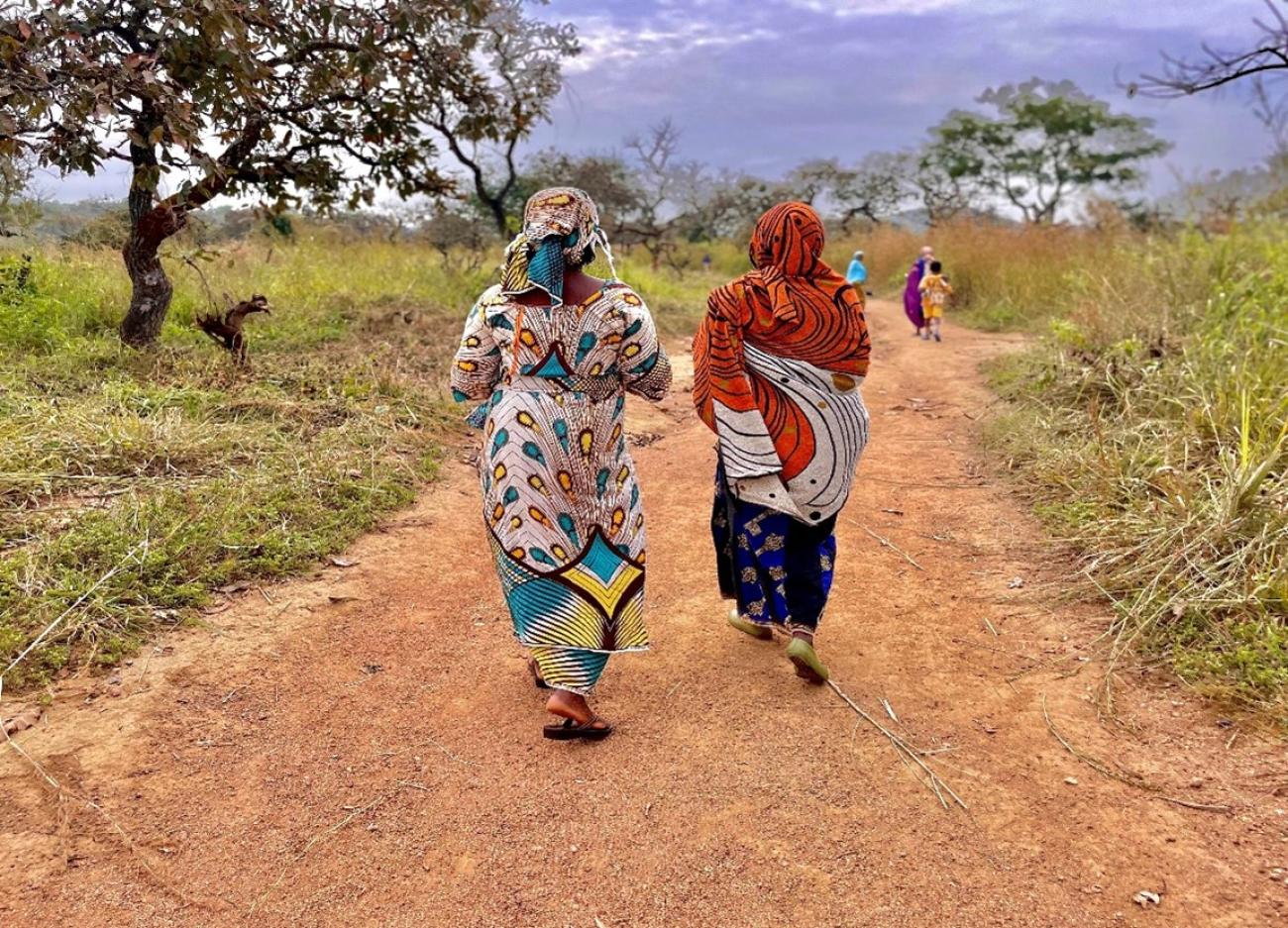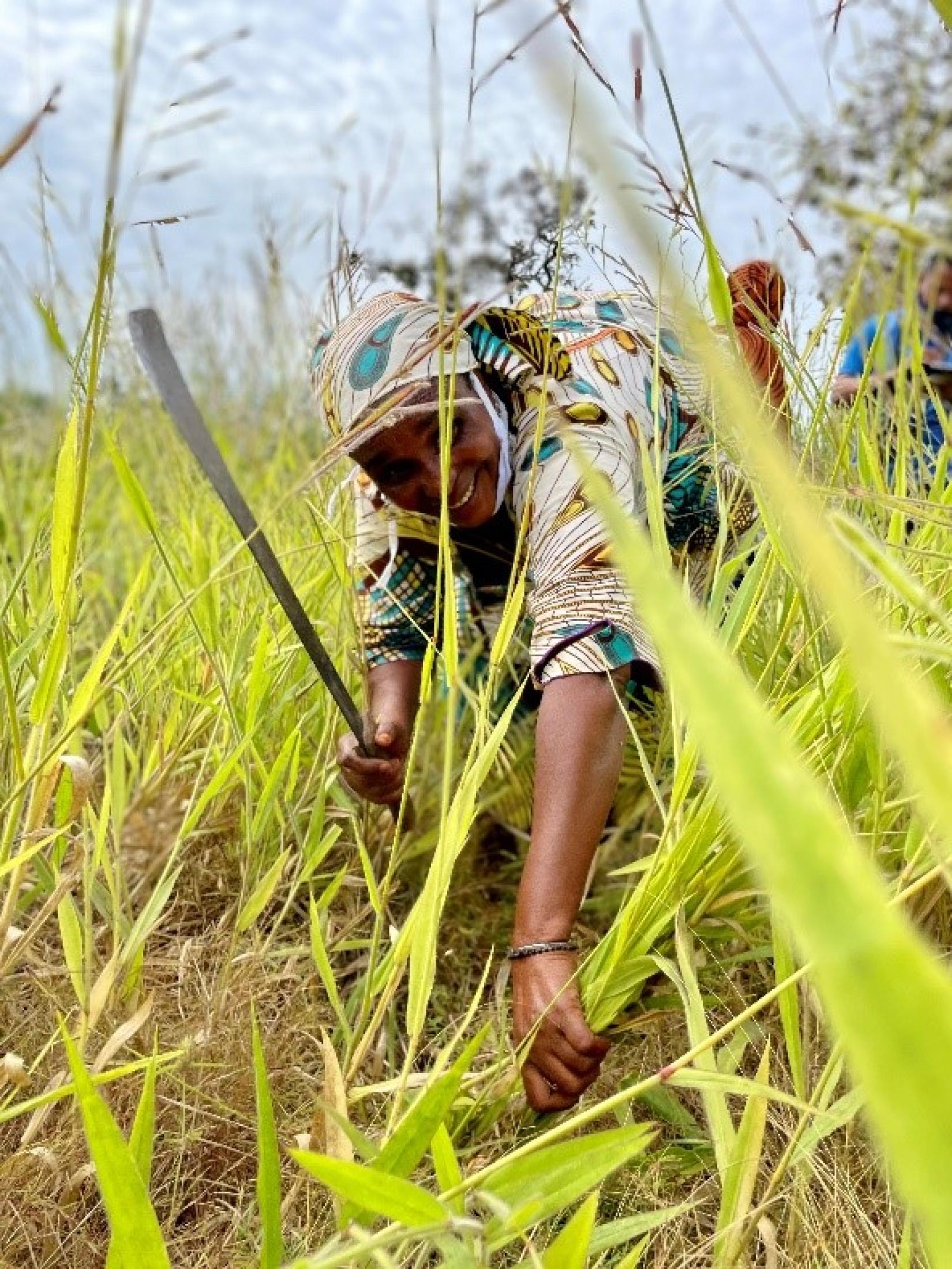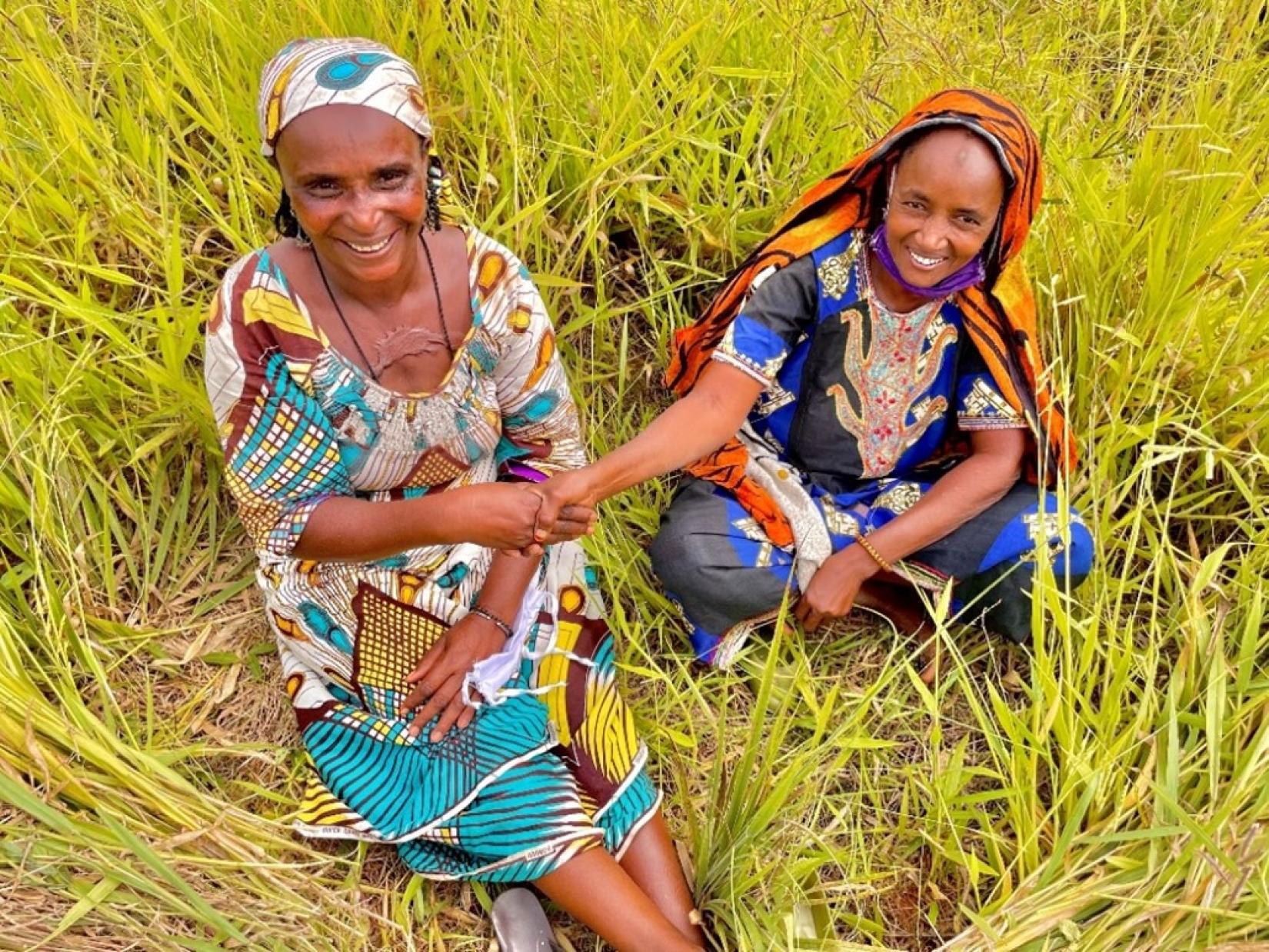Cameroon: Displaced by conflict, bonded by a quest for survival

In the Adamawa, East and North regions of Cameroon, the World Food Programme’s (WFP) resilience projects are giving women opportunities to work together
Rabiatou Nouhou and Kaltoumi Alim look like sisters as they walk the earth road to a nearby brachiaria grass farm, holding hands. It is hard to believe that these two women are not related. In fact, they come from different countries. Rabiatou is a refugee from the Central African Republic, who fled violence there since 2014. Kaltoumi grew up in the village of Borgop in Cameroon and has been tending to her family farm from a young age.
Rabiatou says she arrived Cameroon having lost all hope, but farming bracharia and Kaltoumi’s friendship gave her a new perspective on life. “When I first arrived in Cameroon, life was unbearable. Today I can cater to my family and I have friends,” she says.
Rabiatou’s journey to Cameroon is a harrowing tale of tremendous struggle. She remembers vividly the day she fled the Central African Republic. She was sitting on her porch chatting with her neighbour when suddenly “I heard gunfire and screams coming from all directions. My whole body tensed up,” she explained. She did not even know who was fighting or why. All she knew was she had to get her family out of harm’s way. They left all their valuables behind, clothes, a commercial motorcycle and a dozen cattle. “We lost everything but we managed to escape with our lives,” Rabiatou says.
She tears as she explains her ordeal. Her friend, Kaltoumi holds her hand and reassures her. When they got to Cameroon, the next major concern was for food. “I could not afford to worry about how the people would receive us, because we were so hungry and exhausted. All I wanted was food.”

Her friend Kaltoumi says she too remembers the day refugees arrived Borgop village. The village chief had called a meeting to inform the villagers of the new arrivals. “Life was already difficult and now they wanted us to help others,” she recounts. Kaltoumi has spent her whole life in Borgop and considered herself a hard worker. However, it was still difficult to make ends meet. “We ate once a day and on rare occasions twice,” she says.
When the World Food Programme initiated a resilience-oriented food assistance package Kaltoumi and Rabiatou were both enrolled into the programme. It was easy to adapt their farming skills and culture to the new techniques that WFP was teaching for greater yields. As the project advanced, Kaltoumi and Rabiatou began to develop a close bond.
Long hours of walking to the farm together, working together and sometimes eating together made them accept each other. Before long, they were inseparable. “We are more than co-worker or friends; we are like sisters,” Rabiatou says while looking at Kaltoumi. “Thanks to this project we have learned new skills, gained knowledge on the value of brachiaria grass and how to live peacefully with the cattle herders,” she adds.

By 2021, the resilience programme, implemented in Adamawa region of Cameroon had resulted in the development of 125.6 hectares (ha) of farm sites, including 59 ha of vegetables and fruit plots, 37 ha of fodder, 29 ha of tree farming and 0.6ha to fish farming. The initiative allows over 5,760 food insecure people to receive food baskets covering their household daily needs.
The brachiaria grass, farmed by Kaltoumi and Rabiatou, is necessary for herders to feed their livestock during the dry season, thus helping to prevent the frequent agro-pastoral conflicts in the Adamawa region. This environmentally friendly grass protects the soil from erosion while maintaining its fertility.
With the money made from selling their harvest of brachiaria grass to cattle herders, Kaltoumi and Rabiatou have managed to save some of the funds to invest in future farming projects, buy school supplies for their children as well as other necessities for their families. “Before now, we just sit in the camps and wait for people to give us hand-outs and charity. Now, thanks to these farms, I can earn a living on my own,” says Rabiatou while still holding hands with Kaltoumi.
Since 2013, more than 290,000 Central Africans have fled conflict in CAR to seek refuge in the North, East and Adamawa regions of Cameroon. Many of them abandoning their land, homes and livelihood sources. The socio-political crisis in the Central African Republic has led to a sharp deterioration in food and nutritional security in the North, East and Adamawa regions. Issues related to access to water, healthcare and land resources are sometimes a source of tension between Cameroonian host populations and Central African refugees. WFP's resilience activities enable host and refugee populations to recover and adapt from conflicts strengthening their resilience and social cohesion.
WFP’s resilience and food assistance for asset creation projects to Central African refugees and host population in the East, Adamawa and North regions of Cameroon is supported by the generous donations of Germany, Norway, Japan and United States of America.







